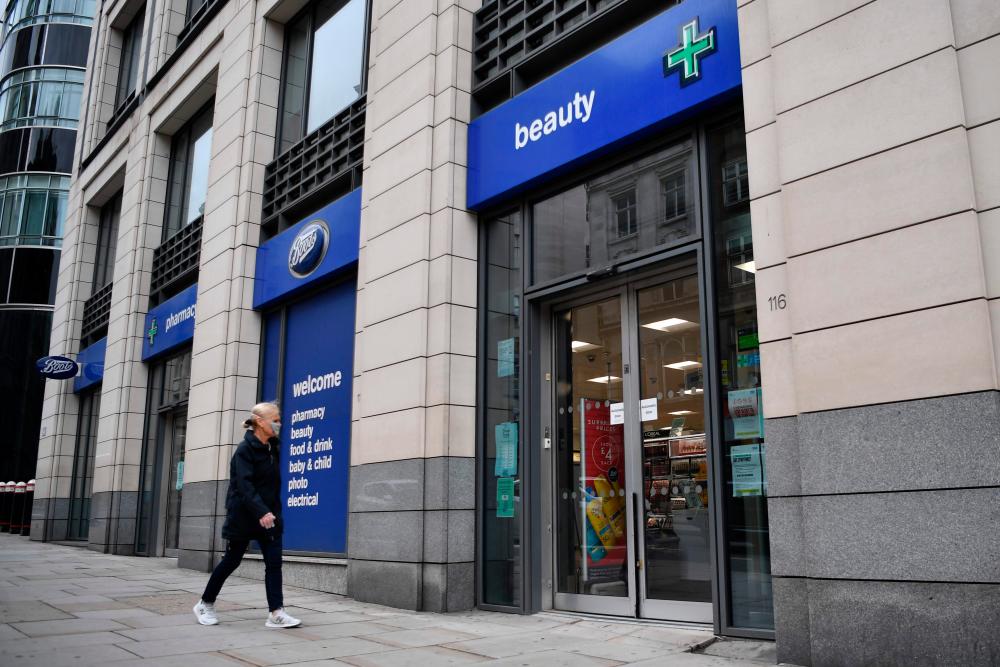LONDON: Britain's high street faces more than 5,000 job cuts after two of its biggest names said that customers were unlikely to return to their old shopping habits after the coronavirus crisis, in the latest blow to the country's ailing economy.
Health and beauty chain Boots and department store John Lewis today joined other retailers in warning that they had to close stores to survive after customers moved online and remained wary of returning to town centres.
Boots, owned by Walgreens Boots Alliance, announced 4,000 cuts in a blow to British finance minister Rishi Sunak, who announced his latest plan to save jobs on Wednesday, while John Lewis said it could lose 1,300.
Thousands of job losses have already been announced by the menswear shop TM Lewin, department stores Harrods and Debenhams, fashion stores Oasis, Warehouse, and Arcadia, and the DIY outfit Travis Perkins since the coronavirus outbreak.
Boots and John Lewis today both said that online trading was becoming more central to their businesses.
John Lewis, known as middle England's favourite department store, said it proposed to close eight stores as online would make up to 70% of sales this year and next, from 40% pre-crisis.
John Lewis, whose physical stores were already struggling before the coronavirus outbreak as shoppers switched to online purchases, said it expected to sell the majority of its goods through the internet this year and in 2021.
"Before the virus struck, 40% of John Lewis sales were online," the company said in a statement today. "This could now be closer to 60 to 70% of total sales this year and next."
Among the eight shops shutting permanently is a department store in England's second biggest city Birmingham and a much smaller outlet at London's Heathrow airport.
John Lewis forms part of the John Lewis Partnership comprising also the upmarket Waitrose supermarkets.
"Closing a shop is always incredibly difficult," John Lewis Partnership chair Sharon White said in a statement. "However, we believe closures are necessary to help us secure the sustainability of the Partnership and continue to meet the needs of our customers however and wherever they want to shop."
Boots meanwhile said that Covid-19 had "accelerated the shift by consumers towards digital channels and online shopping".
Owned by Walgreens Boots Alliance, Boots UK said it planned "significant restructuring across its head office, store teams and opticians... resulting in a reduction of its headcount of more than 4,000 and the closure of 48 Boots Opticians stores".
During the pandemic, thousands of Boots and John Lewis staff have had up to 80% of their wages paid for by the UK government under the state's furlough scheme, which finance minister Rishi Sunak has said must end in October.
A spokesman for British Prime Minister Boris Johnson said the government stood ready to help after Boots also said it had decided to close 48 optician stores after its UK shopper numbers plunged 85% in April at the height of the lockdown.
The world's sixth-biggest economy shrank by 25% in March and April and could be heading for its biggest fall in 300 years in 2020, with an unemployment rate on course to more than double to about 10%, according to official projections.
That fear of what could lie ahead has put an intolerable strain on retailers, already battling high rents, business rate taxes, tight margins and a rapid shift online.
Since the outbreak, many have failed to pay their rent, in turn hitting commercial property owners such as Intu which has called in administrators due to high debts.
Julie Palmer, partner and restructuring expert at Begbies Traynor, said many businesses would implement drastic change.
"Investment will be poured into parts of the business that are strengthening and pulled from areas that are unsuitable for these modern ways of trading," she said. – AFP. Reuters










